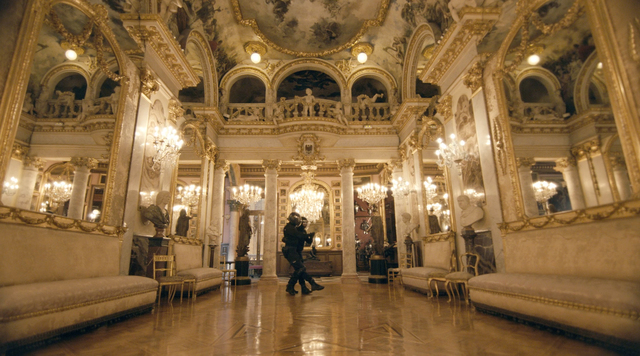
Echoing Goya and Picasso, the exhibition ¡Dulces Sueños! focuses on the contemporary Spanish scene, showcasing a dozen Spanish artists of the young generation, native Spaniards or Latin Americans, whose works are characterised by their political commitment.
El sueño de la razon produce monstruos [The Sleep of Reason Produces Monsters]: in the late eighteenth century, Spanish artist Francisco de Goya gave this title to an etching that has become one of the most famous from the Enlightenment period. The artist’s dreams are invaded by disturbing creatures, whose origin is left to our appreciation: are they caused by the usual uncanniness of dreams or by foresight on the part of the artist, who glimpses future social, political, and human monstrosities?
In 1936, Goya was an inspiration for Picasso when he also created in an etching the surrealist story Sueño y mentira de Franco [The Dream and Lie of Franco]. Three years after Picasso’s death and one year after Franco’s, this graphic series was presented once again in 1976 at the Venice Biennale, where Spanish artists and intellectuals held the España, vanguardia artística y realidad social exhibition [Spain: Artistic Avant-Garde and Social Reality], the first official free and anti-Francoist event since the Spanish Republican Pavilion at the International Exposition in Paris in 1937. It was during these same years that the effervescent Movida emerged, a movement of freedom and transgression, excelling at music, film, photography, and painting, shaping a Spanish scene that assumed a form at once festive, expressive, and provocative, while retaining a conceptual and political dimension.
The origin of this title is itself historic and current: the exhibition opens on a video by Carlos Aires, a surprising tango, the Argentinian dance of exile, performed in an historic, baroque setting by two police officers in helmets and combat gear, to the sound of Sweet Dreams (“Dulces Sueños”) by The Eurythmics.
Set to this bittersweet and pulsating air, the melancholic joy of music, history, and prohibition are intertwined. In Spain, it is still forbidden to photograph police officers.
The dozen artists presented question how even today Spanish history re-emerges in society, while the old debates on the Civil War continue to mark current events, whether these are Franco-related or concern the forgotten identity of the anonymous dead during the war. Broadly speaking, these artists also question the resurgences of postcolonial history and the challenges of global history: a history that has meant – and means – that we chose and still choose to exploit others economically, culturally, sexually, or politically. When will the “sweet dreams” (Dulces Sueños) become realities?
The ¡Dulces Sueños! exhibition devised by Les Abattoirs has enjoyed the expertise of Manuel Segade, curator and director of the Centro de Arte Dos de Mayo (CA2M) in Madrid and Marta Gili, art critic and curator and former director of the Jeu de Paume (Paris), for the work of Jordi Colomer.
Several of these artists and others from the Spanish scene are also present in the exhi-bition programme Je suis né étranger [I’m a native foreigner] designed by les Abattoirs for the whole Occitanie region.
Featured artists: Pilar Albarracín (born in Seville in 1968, lives in Madrid), Carlos Aires (born in Ronda in 1974, lives in Madrid), Daniel García Andújar (born in Almoradí in 1966, lives in Barcelona), Jordi Colomer (born in Barcelona in 1962, lives in Barcelona and Paris), Democracia (Spanish art group 2006, Madrid), Esther Ferrer (born in Saint-Sébas- tien in 1937, lives in Paris), Dora García (born in Valladolid in 1965, lives in Barcelona), Núria Güell (born in Vidreras in 1981, lives in Vidreras), Glenda León (born in Havana in 1976, lives in Havana and Madrid), Eugenio Merino (born in 1975 in Spain, lives in Madrid), Daniela Ortiz (born in Cuzco in 1985, lives in Barcelona), Pedro G. Romero (born in Aracena in 1964, lives in Seville), Oriol Vilanova (born in Manresa in 1980, lives in Brussels) (Les Abattoirs press-release)
Les Abattoirs, Musée – Frac Occitanie 76 allées Charles-de-Fitte. 31300 Toulouse
Image: Carlos Aires “Dulces sueños”
